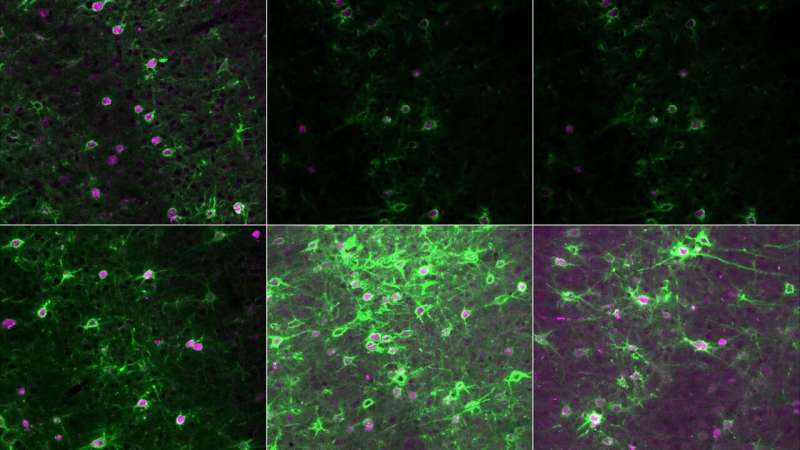This article has been reviewed according to Science X's editorial process and policies. Editors have highlighted the following attributes while ensuring the content's credibility:
fact-checked
peer-reviewed publication
trusted source
proofread
Examining options for reactivating, repurposing and rewiring the brain

Developing brains become shaped by the sights, sounds, and experiences of early life. The brain's circuits grow more stable as we age. However, some experiences later in life open up opportunities for these circuits to be rapidly rewired. New research from Cold Spring Harbor Laboratory Associate Professor Stephen Shea helps explain how the brain adapts during a critical period of adulthood: the time when new mothers learn to care for their young.
Shea's work in mice shows how this learning process is disrupted when a small set of neurons lack a protein called MECP2. In humans, MECP2 dysfunction causes the rare neurodevelopmental disorder Rett syndrome. Shea's findings could point researchers toward the brain circuits involved in Rett syndrome and potential treatment strategies. His research could also have implications for more common neurological conditions.
Shea explains, "It's not lost on us that Rett syndrome patients have difficulty interpreting and producing language. Difficulties with communicating are widespread in autism spectrum disorders. One of the reasons we study Rett syndrome is that this may be a valuable model for other forms of autism."
The Shea lab's studies of MECP2 began about 10 years ago when he first learned that female mice with mutations in the Mecp2 gene are poor parents. When it comes to parenting, most mother mice are quick learners. But without adequate MECP2 protein, Shea says, "they neglect their children and don't listen to their cries."
Shea and his team tested how eliminating MECP2 from specific cells in the mouse brain affected maternal behavior. They found that for pup retrieval to be delayed, the protein only had to go missing from a small subset of cells in a sound-processing part of the brain. The crucial cells are known as parvalbumin (PV) neurons. To efficiently learn to retrieve their pups, mice need MECP2 in those specific brain cells when they first hear the young animals' cries of distress.
Shea points out that PV neurons also play an essential role in brain circuits earlier in life. These cells normally dampen the signals of other neurons. But they release this inhibition during development, creating conditions that are favorable for change. Shea says,
"We find that some of the same mechanisms engaged in development are actually at play in adults. They can be reactivated and repurposed for rewiring the brain in a new life time point."
In other words, it's not just about development or adulthood. This research may provide clues about brain disorders that arise later on, like dementia and Alzheimer's disease.
The study is published in The Journal of Neuroscience.
More information: Deborah D. Rupert et al, Selective deletion ofMethyl CpG binding protein 2from parvalbumin interneurons in the auditory cortex delays the onset of maternal retrieval in mice, The Journal of Neuroscience (2023). DOI: 10.1523/JNEUROSCI.0838-23.2023




















